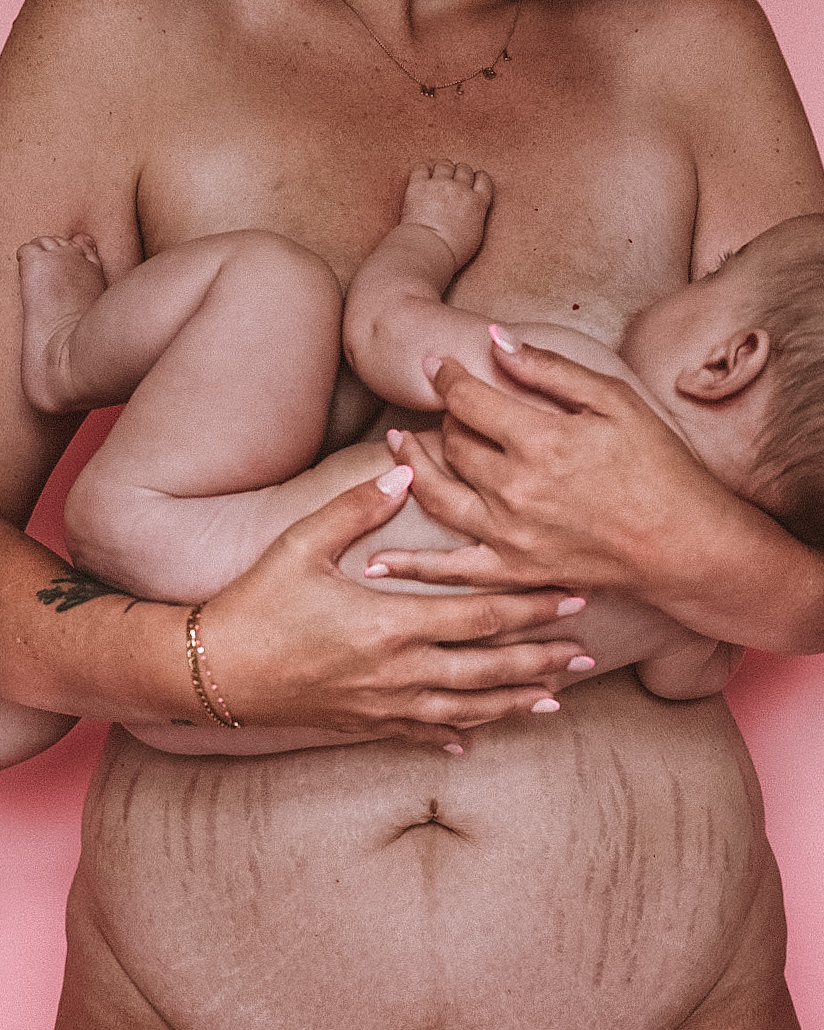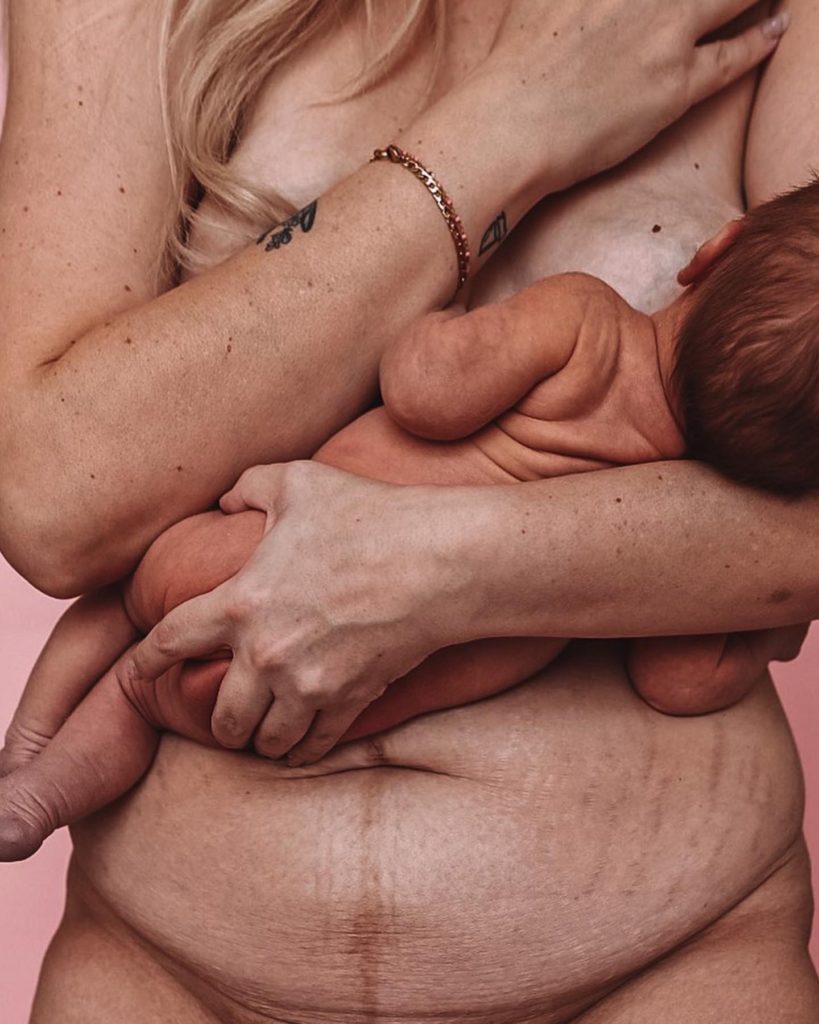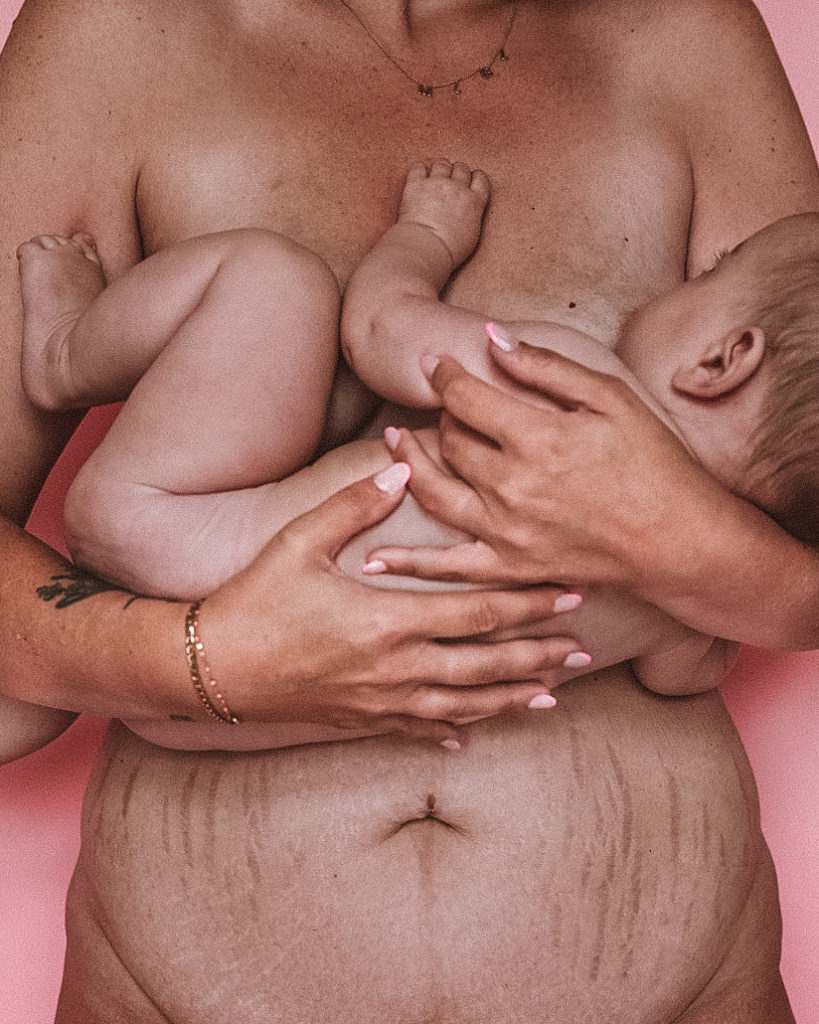Let’s Call Postpartum For What It Is: Grief.
July 16, 2021
I’m sitting here on the day of my daughter’s half birthday.
6 months old. 24 weeks. 182 days.
Those sound like big numbers. Because since 9:45 pm in my living room on a Friday night in the middle of January, I’ve been living hour to hour.
Everything is timed.
How long a feed was, when was their last feed, how many poops, how many pees, did you change your pad in your underwear? Make sure you drink, make sure you eat enough calories, sleep when you can, minimize movement, gosh laundry takes a week.
Life began to feel like a math equation, constantly calculating days, hour by hour.
It feels like a giant wave crashing into you and your world, or a tsunami really depending on how it hit.
Pregnancy wasn’t easy, but it commands tenderness and attention and a softness and joy from everyone you meet.
You are praised, rooted on, fed whatever you feel, and complimented for your glow repeatedly.
So when the waves of labour come, it can feel like birth is it’s peak – the final surge. Attention, praise, joy, celebration. All of that energy has come to its crashing point.
Perhaps I was right when I said tsunami though because, unlike most waves, it’s a cleaner exit back into the ocean, where a tsunami leaves its mark.
You are forever changed.
Your vagina is torn, or your stomach is cut. You have been opened one way or another.
So when it all calms down, the crowds and the attention settles as the birth becomes more and more hours away in the past as the days turn to weeks and months, perhaps like myself, you may feel you are left reeling in the chaos that is left.
You were independent.
Fun.
Sleep-deprived from the fun.
You were so cute when pregnant.
So celebrated.
Now you feel like a shell of who you were and you miss her.
Deeply.
I’m sorry to say it, but that is grief.
I’m sorry because it feels wrong somehow to celebrate a blessing and also acknowledge the loss.
But do they not hold hands?
Grief itself is a reaction to loss.
You are not who you were before.
That person evolved and the former self is now lost.
It. Is. Ok. To. Grieve.
Why is grief so important?
My friend Nicole once repeated a saying to me that said:
“Grief is love with nowhere to go”
Healthy grief is a form of releasing those emotions by allowing them to flow through you, even violently at times, so that the energy can land into other places and new things.
Namely: you.
The difficulty with postpartum grief is that it comes with a lot of external sentiments that cause you to feel trapped or alone within it.
“At least you have a cute and healthy baby”
“Oh gosh, no, I got hit with it SO much worse than you did”
“Oh, who cares”
“You can’t even tell”
All of these things gaslight your emotions. Create shame and confusion.
Are you not allowed to mourn what was while simultaneously grateful for what is?
Of course, you are.
Perhaps, we all just need to hear it.
When I envisioned my life and myself 6 months postpartum I imagined that my body would feel familiar again.
That the reflection in the mirror is closer to the woman I once knew.
So much so, I started to just look away.
Why waste time on this reflection who isn’t me?
I’ll just wait.
For myself to return.
I started changing my clothes out in the hallway.
I wanted lights off for sex.
Baggier clothes.
Hands. Off.
I was holding myself off from myself.
I was avoiding grief.
Today, I’m allowing myself full permission to grieve.
So that the love that has nowhere to go finally finds a place to land.
I don’t necessarily need it to be in my new reflection.
Perhaps, it is meant to land somewhere deeper within me.
Bouncing forward, not bouncing back.


